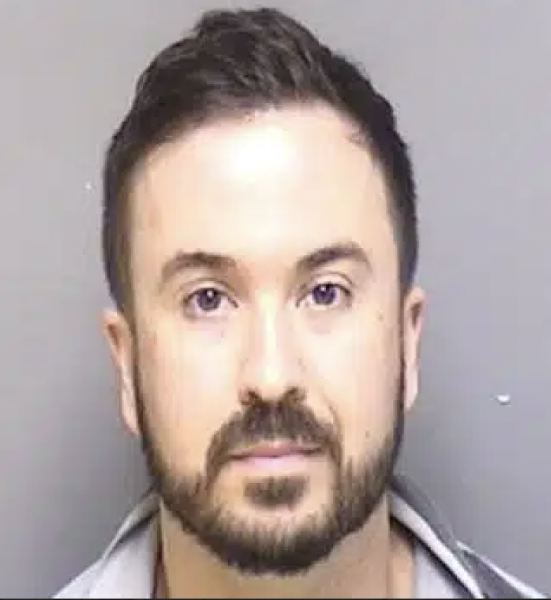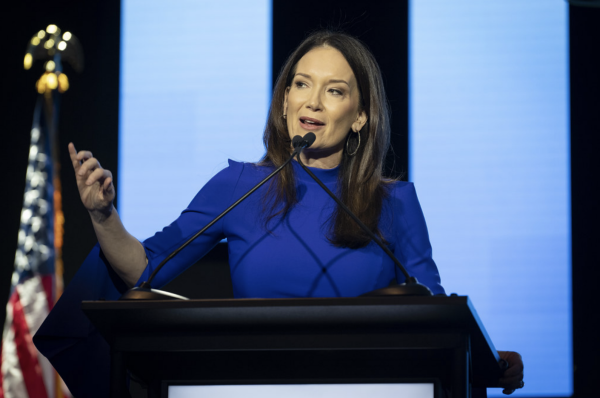Jury Finds Derek Chauvin Guilty of Murdering George Floyd
On April 20, a jury found former Minneapolis police officer Derek Chauvin guilty of second-degree murder, third-degree murder and second-degree manslaughter of George Floyd.
His conviction came as a relief to much of America, although many thought of the verdict as accountability, rather than true justice.
President Joe Biden described the jury’s decision as “a giant step forward in the march towards justice in America.”
The trial of Derek Chauvin commenced on March 29 and took place at the Hennepin County Government Center in Minneapolis.
Although few were allowed inside the courtroom due to the pandemic, the trial was livestreamed. Judge Peter A. Cahill, who had previously worked as a public defender, private defense lawyer and prosecutor, presided over the case. The witnesses included medical personnel, police and bystanders. The prosecution, made up of lawyers Jerry Blackwell, Erin Eldridge, Matthew Frank and Steve Schleicher, faced defense attorney Eric Nelson, whose client, Chauvin, was charged with second-degree murder, third-degree murder and second-degree manslaughter.
One of the defense’s main arguments concerned the actual cause of Floyd’s death.
“The evidence is far greater than nine minutes and twenty-nine seconds,” said Nelson, Chauvin’s attorney, referring to the presence of drugs in Floyd’s blood and his preexisting medical conditions.
“The results of Mr. Floyd’s toxicology screen revealed the presence of fentanyl and methamphetamine,” Nelson said. “The autopsy revealed … coronary disease, an enlarged heart, what’s called a paraganglioma, which is a tumor that secretes adrenaline, swelling or edema of the lungs.”
The defense also made the argument that Chauvin was distracted by bystanders.
“Let me ask you a hypothetical question,” Nelson said during the cross-examination of witness Genevieve Hansen, a firefighter. “You’re outside of a burning building, and you’re spraying the hose on the fire … has anyone ever tried to come up to you and say you’re doing it wrong?”
Nelson also asked Hansen if she had ever been filmed or yelled at while trying to do her job.
“Do you think it would make your job fighting a fire harder?” he asked. “You wouldn’t be distracted by that at all?”
Conversely, the prosecution’s main argument was that Floyd’s death was in fact a homicide caused by the excessive and unnecessary use of force, not by his preexisting medical conditions.
“Mr. Derek Chauvin betrayed this badge when he used excessive and unreasonable force upon the body of Mr. George Floyd,” prosecutor Jerry Blackwell said. “He was well aware that Mr. Floyd was unarmed, that Mr. Floyd had not threatened anyone, that Mr. Floyd was in handcuffs, he was completely in the control of the police, he was defenseless.”
Blackwell conceded to the court that for years, Floyd struggled with an opioid addiction. He said, though, that the evidence suggested Floyd did not die from a drug overdose.
“When a person dies from an opioid overdose, what do they look like? First and foremost, asleep… They simply pass away… They’re not screaming for their lives. They’re not calling on their mothers. They are not begging, ‘please, please, I can’t breathe.’ That’s not what an opioid overdose looks like,” Blackwell said.
Blackwell later asked semi-retired forensic pathologist Dr. Lindsey Thomas to testify as an expert witness and to share her opinion on whether Floyd would have died on the night of May 25 had he not encountered the police.
“There is no evidence to suggest he would have died that night, except for the interactions with law enforcement,” she said.
The jury deliberated for 10 hours before delivering the guilty verdict on all three counts.
Baani Singh is currently a News Editor for Horizon, a position she held in both the 2021-2022 and 2022-2023 school years. Prior to that, she worked as...














































